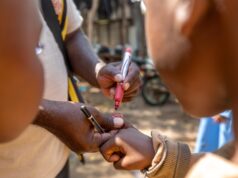The government has taken decisive steps to address the increasing stocks of unsold tea held by smallholder tea factories managed by the Kenya Tea Development Agency.
This follows a meeting on August 1, at the Tea Trade Centre.
The meeting involved Agriculture PS Paul Ronoh, KTDA officials, the East African Tea Trade Association (EATTA), tea buyers and brokers.
Contrary to recent reports circulating on social media, which claimed that KTDA is holding over 400m Kgs of unsold tea, it was clarified that the actual figure is significantly lower at 100m Kgs.
“KTDA is only holding 100 million kgs of unsold teas from smallholder tea factories,” read part of a statement by PS Ronoh
The government urged all tea traders to refrain from spreading unverified information, as it causes unnecessary anxiety in the market.
The government and the stakeholders made key resolutions from the meeting.
The government will amend the Tea Act 2020 to allow for Direct Sales Overseas (DSOs) by all tea producers, including those managed by KTDA. This move aims to open up new markets and streamline the sales process.
The reserve price mechanism, which has been a point of contention, will undergo a review to align with current market dynamics.
The government also said all tea producers must adhere to a minimum tea quality standard of 65 per cent to combat the declining quality of Kenyan tea.
Additionally, producers are encouraged to diversify their tea production, moving beyond traditional black CTC tea to include orthodox and speciality teas.
The auction organizer will introduce a dedicated trading platform within the tea auction for orthodox and speciality teas, enhancing their visibility and marketability.
The government and tea industry stakeholders will collaborate to boost tea value addition from the current 5 per cent to over 22 per cent.
“Tea traders and all other tea industry stakeholders shall join in the government’s agenda of enhancing value addition from the current 5 per to over 22 per cent,” it read.
To support this, the government will establish a Common User Facility (CUF) for value addition and implement fiscal incentives such as tax exemptions.
The government will also intensify marketing efforts and seek to sign MOUs and bilateral agreements with key international markets to improve access to Kenyan tea.
Ronoh emphasized the importance of these measures, stating that the government and tea industry stakeholders are committed to reducing the level of unsold teas.
“Both the government and tea industry stakeholders will work together to reduce the level of unsold teas from smallholder tea factories managed by KTDA,” read his statement.


















